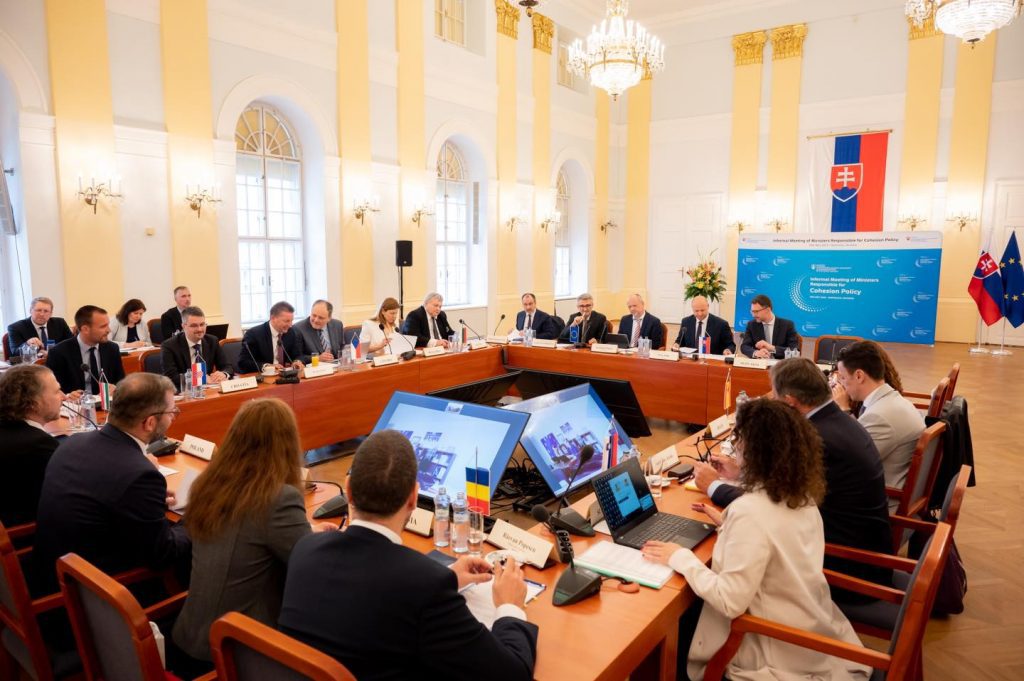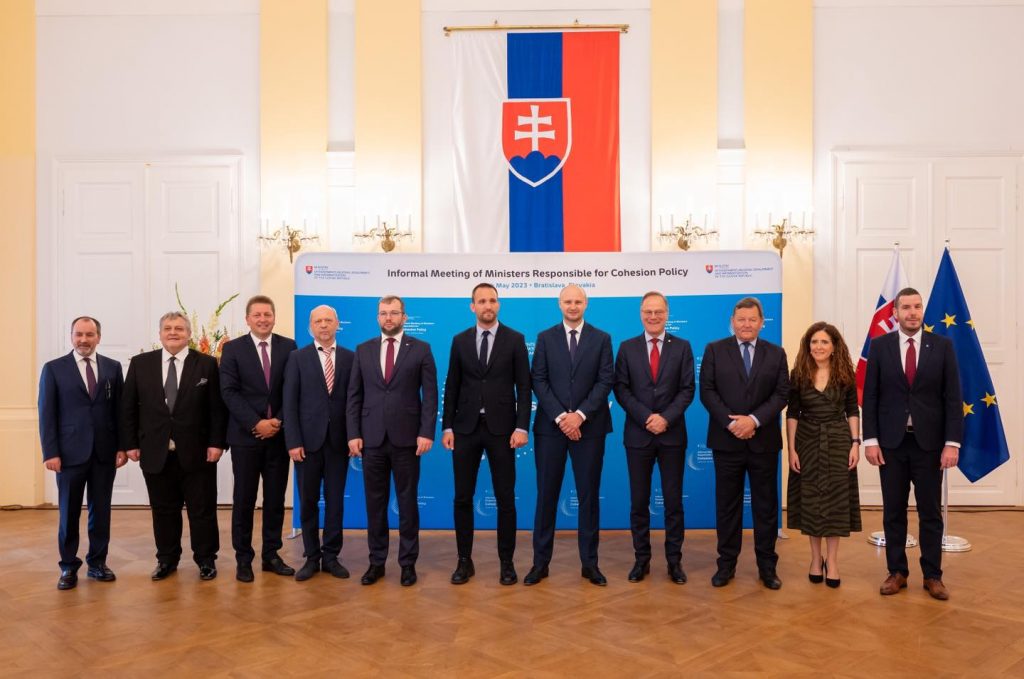On 29-30 May 2023 Ministers responsible for cohesion policy from Bulgaria, Croatia, Czechia, Hungary, Poland, Romania, Slovakia and Slovenia met in Bratislava to discuss future of cohesion policy along with Commissioner Elisa Ferreira, Professor Andrés Rodriguez-Pose, and the upcoming Spanish Presidency of the Council of the EU.
Although this year the collective focus is on launching the 2021-2027 programmes, it is also the right time to lay foundations for an effective use of EU funds after 2027.
In the exchange, Ministers acknowledged that beyond the existing disparities, the new megatrends and transitions bring numerous economic and social challenges and opportunities that are unevenly regionally distributed across all EU regions. These are the key challenges for the entire EU and cohesion policy is already well equipped to be at the forefront of the EU response. We need an EU framework for leaving no EU region and no person behind in the ongoing transitions, bearing in mind the cohesion policy narrative and its Treaty based objectives, namely to mitigate the regional disparities.
Ministers put special attention on development of the place-based approach with a view of increasing the efficiency of the EU response. Based on the Slovak discussion paper, Ministers looked at a possible way how the place-based approach could be mainstreamed and strengthened within future cohesion policy.
Ministers assessed benefits and limitations of using available regional data and indicators at the EU level to better steer programming which would be driven mainly by the place, not the sectors. In order to reinforce the place-based approach, the future programming process could be inspired by the experience with designing the Territorial Just Transition Plans. Such place-based programming should be organized at appropriate level.
As a result, the role of obligatory EU minimal thematic concentration requirements should be in balance with the place-based narrative, providing much more operational flexibility to support all justified actions linked to the region´s transition readiness.
Ministers also touched on relevant considerations and good practise examples regarding the quality of sub-national governance in order to anchor place-based programming in a growth-enabling environment. The role of administrative capacities at regional and local level was highlighted, including the need to support their quality from various instruments.
Of course, a specific programming stream should remain for national investments covering the whole area of the Member States related to national sectoral reforms and the achievement of national and European goals and commitments. An appropriate balance between these two programming streams should be achieved.
Without prejudice to the discussions on the next Multiannual Financial Framework post-2027, Ministers supported maintaining a strong cohesion policy with a wide geographical coverage: All EU regions should remain eligible, while focussing on upwards convergence of the least developed regions and the specific territories affected by identified challenges. Ministers advocated stability in the allocation method and definition of the categories of regions, determined mainly by the GDP levels.
The meeting provided helpful inputs into the ongoing work of the High-level reflection group (HLG). The Commissioner and the Professor took good note of the statements, which will feed in the HLG final report.
The next opportunity to bring this debate further is already on 22 June in Sibiu, Romania. The upcoming Spanish Presidency will organize two ministerial meetings on future of cohesion policy. Then in January the High-level group will deliver its report with recommendations. The Czech Republic will take over from Slovakia the coordination efforts with the objective of producing a joint statement in May 2024.



